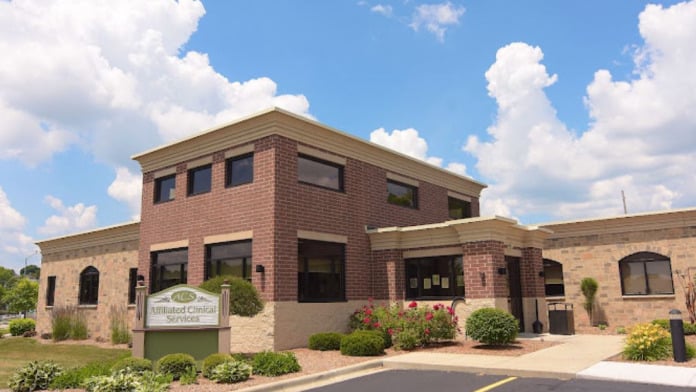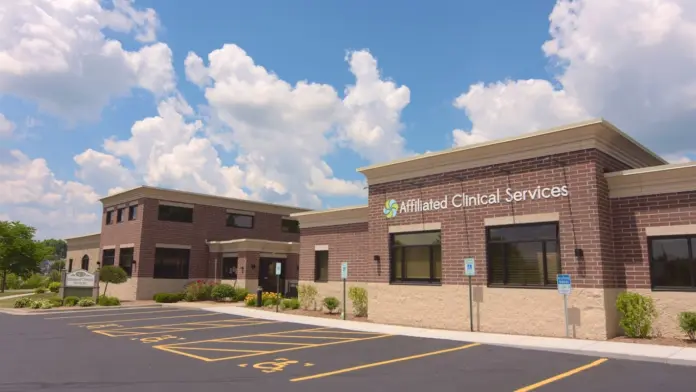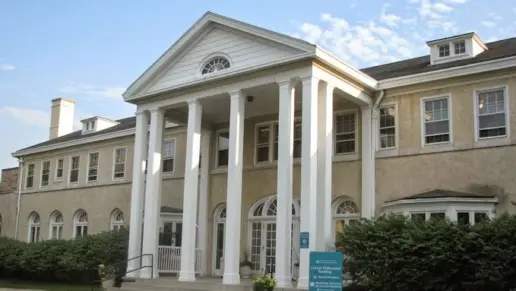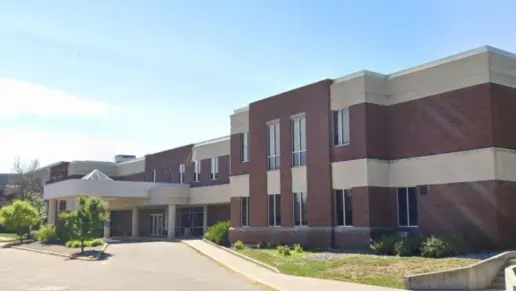Nothing was done by them to help me or even point me in a good direction. At my sessions, my counselor never once asked me how I really felt about all this, they only kept throwing pills at me
About Affiliated Clinical Services
Affiliated Clinical Services offers outpatient substance abuse programs for adults and adolescents in West Bend, Wisconsin. They provide a variety of options such as group and individual counseling and case management services. They also conduct necessary psychiatric evaluations or psychological testing as required. A doctor will be on hand for clinical and medical consultations.
Certified alcohol and drug counselors provide treatment services under the direction of the program director. Depending on each patient’s unique needs, the lead therapist and the patient’s prognosis will decide how long each program lasts. Patients will be moved to less intensive treatment levels if they have strong coping mechanisms, a shorter history of addiction or more social support.
Their intensive outpatient program (IOP) is small-scale and does not include the partial day or intensive residential services that are commonly provided by larger more extensive treatment centers. Ten to 12 hours of group and individual services are available each week through their IOP program. This enables patients to take part in their everyday activities like going to work and then attending treatment in the morning or at the end of the day at a suitable facility.
Groups meet one to three times a week for one to five hours each time. To maintain long-term sobriety, clients will keep building their external support networks and working on program materials. Participants in their relapse prevention program must have been sober for at least three months. Clients in this program will strive to stick to their sobriety plan and achieve a long-term sober lifestyle by using the group process and additional support. Groups for relapse prevention get together once a week.
Medication assisted treatment (MAT) patients can participate in day and evening programming offered by their co-occurring chemical dependency treatment programs. A MAT agreement that outlines expectations for Suboxone use drug testing, random drug recall and medication safety protocols is adhered to in addition to core programming. As they finish their outpatient treatment, they employ a tapering protocol that is tailored to each patient’s needs.
Latest Reviews
Gallery


Location
Accepted Insurance



Other Forms of Payment
Private insurance refers to any kind of healthcare coverage that isn't from the state or federal government. This includes individual and family plans offered by an employer or purchased from the Insurance Marketplace. Every plan will have different requirements and out of pocket costs so be sure to get the full details before you start treatment.
Self-pay involves paying for treatment out of your own pocket. You can use savings or credit, get a personal loan, or receive help from family and friends to fund your treatment. If you don't have insurance or your insurance plan doesn't cover a specific program, self-pay can help ensure you still get the care you need.
Financial aid can take many forms. Centers may have grants or scholarships available to clients who meet eligibility requirements. Programs that receive SAMHSA grants may have financial aid available for those who need treatment as well. Grants and scholarships can help you pai for treatment without having to repay.
Medicaid is a state based program that helps lower-income individuals and families pay for healthcare. Medicaid covers addiction treatment so those enrolled can use their coverage to pay for rehab. When a program accepts Medicaid the client often pays very little or nothing out of their own pocket.
Medicare is a federal program that provides health insurance for those 65 and older. It also serves people under 65 with chronic and disabling health challenges. To use Medicare for addiction treatment you need to find a program that accepts Medicare and is in network with your plan. Out of pocket costs and preauthorization requirements vary, so always check with your provider.
Military members, veterans, and eligible dependents have access to specific insurance programs that help them get the care they need. TRICARE and VA insurance can help you access low cost or no cost addiction and mental health treatment. Programs that accept military insurance often have targeted treatment focused on the unique challenges military members, veterans, and their families face.
Addiction Treatments
Levels of Care
Treatments
The goal of treatment for alcoholism is abstinence. Those with poor social support, poor motivation, or psychiatric disorders tend to relapse within a few years of treatment. For these people, success is measured by longer periods of abstinence, reduced use of alcohol, better health, and improved social functioning. Recovery and Maintenance are usually based on 12 step programs and AA meetings.
The goal of drug rehab in Wisconsin is to address drug addiction as a complex issue that involves physical, mental, and relational aspects. During rehab, treatment focuses on each of these areas and gives you the tools you need to achieve and maintain sobriety.
Many of those suffering from addiction also suffer from mental or emotional illnesses like schizophrenia, bipolar disorder, depression, or anxiety disorders. Rehab and other substance abuse facilities treating those with a dual diagnosis or co-occurring disorder administer psychiatric treatment to address the person's mental health issue in addition to drug and alcohol rehabilitation.
Opioid rehabs specialize in supporting those recovering from opioid addiction. They treat those suffering from addiction to illegal opioids like heroin, as well as prescription drugs like oxycodone. These centers typically combine both physical as well as mental and emotional support to help stop addiction. Physical support often includes medical detox and subsequent medical support (including medication), and mental support includes in-depth therapy to address the underlying causes of addiction.
Substance rehabs focus on helping individuals recover from substance abuse, including alcohol and drug addiction (both illegal and prescription drugs). They often include the opportunity to engage in both individual as well as group therapy.
Programs






Clinical Services
Group therapy is any therapeutic work that happens in a group (not one-on-one). There are a number of different group therapy modalities, including support groups, experiential therapy, psycho-education, and more. Group therapy involves treatment as well as processing interaction between group members.
Contact Information
111 East Washington Street
West Bend, WI 53095







